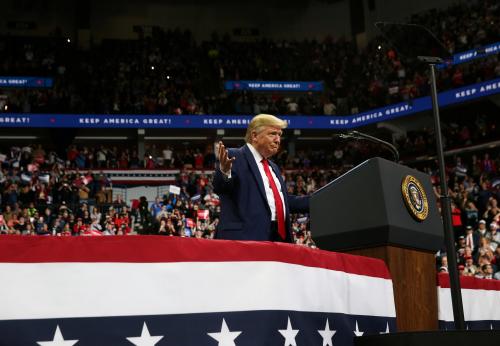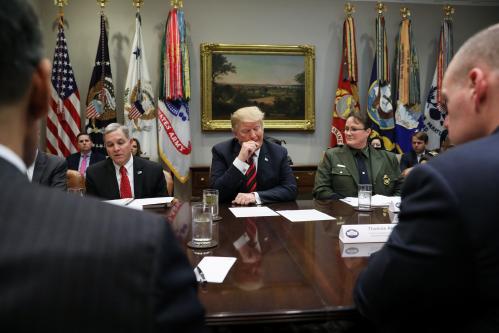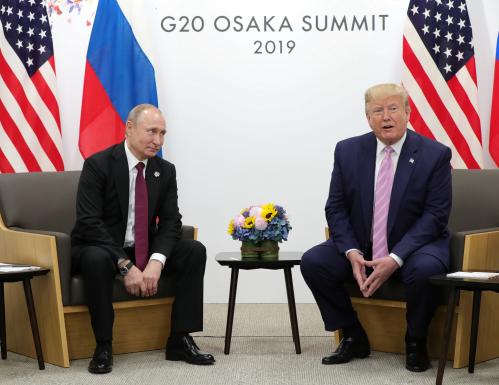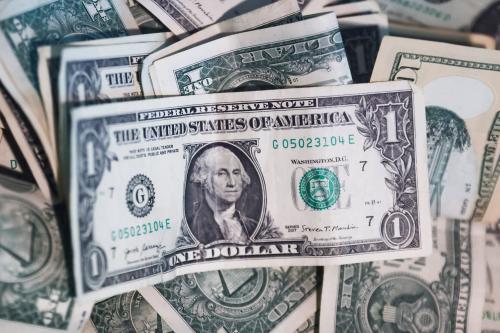This week the House Judiciary Committee drew up, debated and passed two articles of impeachment, the first on abuse of power and the second on obstruction of Congress. Next week, assuming the whole Congress passes them, Trump will become only the fourth American president to be impeached.
The process has unfolded with few surprises. Democrats have rallied behind impeachment, Republicans against. The public is more or less evenly divided along party lines. There is only one more shoe to drop; soon the Supreme Court will decide whether or not to hear cases that would require disclosure of Trump’s tax returns and other business records. Release of these records (which Trump has fought fiercely to protect) could answer the big question that has hung over the Trump presidency since the beginning:
Why has President Trump gotten himself into so much trouble?
While the proximate cause for impeachment is Trump’s dealings with Ukraine, the reason Ukraine matters is because of its ongoing conflict with Russia. Trump’s relationship with Russia is difficult to understand but the explanations fall into four categories:
- Trump wants to change American foreign policy towards Russia.
- Trump wants to make the American presidency stronger, more like a dictatorship.
- Trump is the victim of Russian “Kompromat,” a term for compromising material used for blackmail or extortion.
- Trump is or has been financially dependent on Russian financing for his business empire.
The first explanation is an unlikely one. If President Trump wanted to change U.S. policy towards Russia, he has gone about it in a very haphazard and bizarre way—he has never articulated a vision of foreign policy that involves closer alliance with Russia. Every pro-Russia move Trump has made has surprised and then outraged his fellow Republicans in Congress and in the foreign policy community, as Simon Rosenberg lays out in an excellent piece on the topic. In each instance—the withdrawal of troops from northern Syria, the holdup of money for Ukraine, his fawning behavior over Putin at the Helsinki Summit, his unrequited love for Kim Il Jong in North Korea, and his refusal to censure the Saudi Arabian prince for murder—Trump has acted abruptly and alone. In his wake he leaves a long list of disgruntled foreign policy advisors, many of whom have quit in protest, and Republican Senators that repeatedly depart from their usual fawning praise of the president to object to his foreign policy moves.
As to the second explanation, there is no doubt that Trump admires strongmen like Vladimir Putin and would like to govern free of the constraints of a democratic system. But while he has weakened and degraded some institutions he has not attempted the systematic deconstruction of democratic institutions that, for example, Hungary’s Prime Minister Viktor Orbán has. For instance, as impeachment illustrates, checks and balances seems to be working just fine and “the failing New York Times” isn’t failing at all.
As to the third explanation, kompromat, it is usually associated with sexual or personal misconduct of one sort or another. But sexual misconduct is unlikely to bother Trump and his supporters. He has already admitted to extra-marital affairs and to grabbing women inappropriately. He has paid off multiple women with whom he had affairs—one of whom was an adult film actress. Each of these issues would normally have incensed Republican voters, particularly Evangelical Christians; yet, the president’s support with these voters has remained solid despite the information coming to light. It’s hard to imagine how the Russians, even given some of the allegations that are floating around the internet, could change that.
Of course, there’s another kind of kompromat, consisting of financial as opposed to sexual misdeeds. Trump’s financial involvement with Russians brings us to the last of the four possible explanations. Of all the possible motives for Trump’s inexplicable obsequiousness to Russia, the possibility that his comeback from a highly publicized 2004 bankruptcy is due to Russian money laundering is the one can’t be ruled out—at least not yet.
For starters, Trump broke with tradition by refusing to release his tax returns, as a candidate and since taking office. As part of the impeachment inquiry, the House Intelligence Committee and the House Financial Services Committee subpoenaed Deutsche Bank and Capital One for information about Trump’s finances. (Similar subpoenas were issued to the president’s accounting firm Mazars from the House Financial Services Committee and the House Oversight and Reform Committee.) Trump sued, but a federal appeals court in New York supported the release of financial information. Trump appealed, and the case now sits at the Supreme Court. In the Mazars case, the 2nd and DC circuit courts of appeals ruled against the president’s constitutional claims and the Supreme Court will have to decide whether to take that one up as well.
The money issue is critical because it is Democrats’ last chance to break open the case against Trump. After Trump’s bankruptcy, major banks would not lend him money. The exception was Deutsche Bank. However, improper links between Deutsche Bank and Russia have been well documented. Deutsche Bank was fined $630 million in 2017 for Russian money laundering, and in 2019 it was being investigated for a $20 billion scheme to launder Russian money from criminal enterprises into western banks. Not surprisingly, Congress wants to know if there was any connection between Deutsche Bank’s generosity towards Trump’s enterprises and the boatloads of Russian money they were receiving.
In 2014, Eric Trump told the golf writer James Dodson “Well, we don’t rely on American banks. We have all the funding we need out of Russia.” He has subsequently denied the statement but there are other suspicious connections. For instance, a large number of apartments in Trump Tower in New York and other locations are owned by Russian nationals or by companies thought to be fronts for Russian criminal organizations. The Yale historian Timothy Snyder describes the following: “In Trump World Tower, constructed between 1999 and 2001 on the east side of Manhattan near the United Nations, a third of the luxury units were bought by people or entities from the former Soviet Union.”[1]
The many layers of smoke around Trump and Russia are perhaps best summarized by the following real estate transaction. In 2004, when he was going through bankruptcy, Trump bought a mansion in Palm Beach, Florida, for $41 million. In 2008 Trump sold the mansion to a Russian billionaire named Dmitry Rybolovlev for $95 million. Rybolovlev never lived in the mansion, and held onto it for more than a decade, paying the taxes and upkeep on it.
While the rest of America was watching its wealth vanish in the real estate market crash, Trump was making a tidy profit from a Russian billionaire.
If Donald Trump’s tax returns and other financial statements reveal that he is not a brilliant businessman but rather a wholly-owned subsidiary of Russians, his presidency will collapse one way or another. Trump’s financial story will provide a motive for what has been an irrational presidency, prone to destructive and “self-impeaching” behavior. It could be the final shoe to drop and it now sits at the Supreme Court.
[1] The Road to Unfreedom, P. 220
This work is licensed under the Creative Commons Attribution-NonCommerical-NoDerivatives 4.0 International License. To view a copy of the license, visit https://creativecommons.org/licenses/by-nc-nd/4.0/.
The Brookings Institution is committed to quality, independence, and impact.
We are supported by a diverse array of funders. In line with our values and policies, each Brookings publication represents the sole views of its author(s).








Commentary
Why Trump’s tax returns are so important: This week in impeachment
December 13, 2019